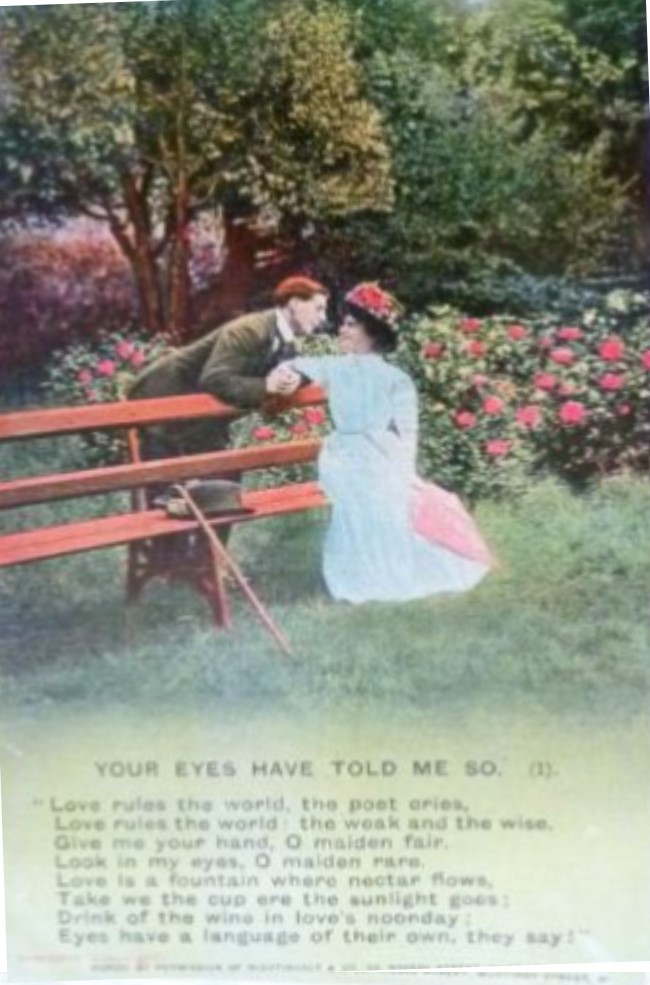Your eyes have told me so
| First Published | 1908 |
| Writer/composer | Ada R Cherry / E Carr Hardy | Roud | RN31059 |
| Music Hall Performers | Various, Michael Nolan? |
| Folk performances | Collected from the singing of: Goodchild, James; England : Hampshire; 1976 |
Love rules the world, the poet cries, Love rules the world, the week and the wise, Give me your hand, O maiden fair. Look in my eyes, O maiden rare. Love is a Fountain where nectar flows, Take we the cup ere the sunlight goes: Drink of the wine in Love’s noonday: Eyes have a language of their own, they say: Your eyes have told me all, your secret now is mine Although you do not speak that word divine. You do not bid me stay, nor do you bid me go But yet I know you love me: your eyes have told me so! Love rules the world, the poet cries Men come and go, but love never dies. Youth now is ours, but time flies fast; Drink of the sweets while youth shall last. Fate led my feet to a beauteous shrine; Fate let my heart to a soul divine; Eyes told the tale in Love’s own way: Eyes have a language of their own, they say:
A sentimental song popular in the UK in 1909-1911, it was collected by Steve Roud from the singing of James Goodchild in 1976, and a snatch of it can be heard on the Vaughan Williams Memorial Library website.
First published by Nightingale & Co of London in 1908, it was later described as “The song of 1911” with the claim that by February 1911 they had already sold 50,000 copies of the sheet music. The song seems to have been sung by a number of different male and female singers but does not seem to have become associated with a particular famous performer*. Like other sentimental songs in the period 1900 to 1920, the song was promoted using a series of postcards printed by Bamforth & Co -seen in slide show below.
Not to be confused with a later, perhaps more famous song of the same title from America’s Tin Pan Alley, first line: I know my lips never met your lips in sweet caress. This later sentimental song, first published in 1919, was written by Gustave Kahn and Egbert Van Alstyne and composed by Walter Blaufuss. It was sung by amongst others John McCormack and Doris Day
*Michael Kilgarriff suggests it was in the repertoire of Irish comedian Michael Nolan (who died in 1910). I have not been able to find any record of this in the usual publications.
Sources:
- Kilgarrif Sing Us
- Lyrics: from Bamforth post cards.
- Sheet Music by Ada Cherry: Worldcat entry (not accessed)
- British Newspaper Archive


